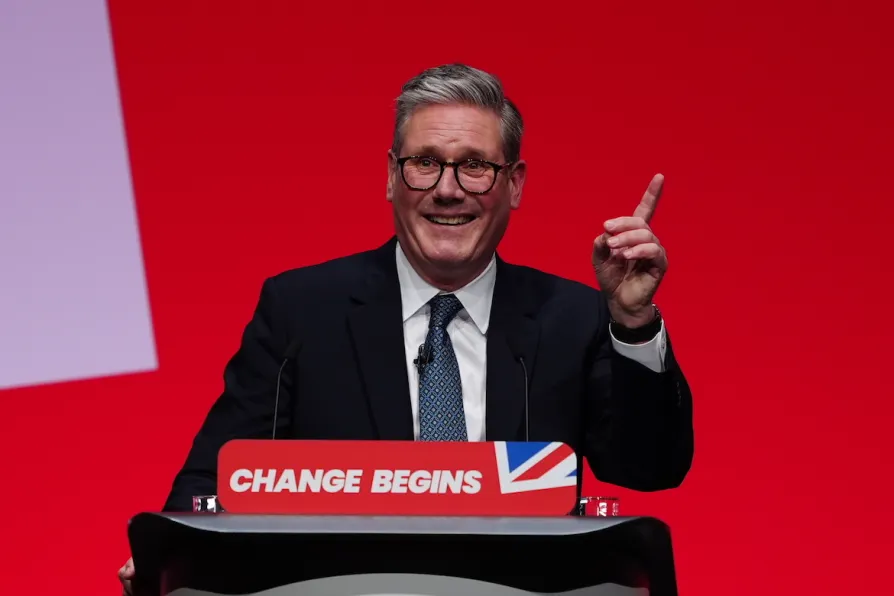

KEIR STARMER’S speech to Labour conference was billed as a light-at-the-end-of-the-tunnel address after weeks of ministerial doom and gloom.
However, we all know that the fabled light may merely be a train heading towards you. Moreover, the tunnel the Labour government is in is largely of its own excavation.
After all, no government should require a relaunch after less than three months in office.
But Starmer has no-one to blame except himself.
Bad policy and bad politics have left the government, elected on a very fragile basis in the first place, diminished and thrashing about before new ministers have even got their feet under the table.
Bad policy must include the maintenance of the two-child benefit cap and the axing of pensioners’ winter fuel allowance, decisions which mock Chancellor Rachel Reeves’s claim that there is to be no return to austerity.
This was a pledge she subtly qualified by talking of “Conservative austerity” as if a Labour variant might be kinder and gentler. On the evidence so far, it isn’t.
The bad politics embraces the exclusion of progressive MPs from the Parliamentary Labour Party and the grotesque acceptance of free suits, frocks, tickets and holiday accommodation from millionaires.
That would be distasteful at the best of times, and since the very same grifting ministers tell us that these aren’t going to be the best of times for ordinary people, it is a preposterous political misjudgment.
Reports of rats-in-sack feuding amongst Downing Street aides also testifies to a disarray that ordinarily takes governments years to work up to, rather than weeks.
There was little in Starmer’s speech to suggest that the situation is going to be turned around in a hurry.
He did, it is true, express genuine revulsion at the far-right instigators of the summer riots and called out, albeit belatedly, the racism which animated them.
On this he gave a lead, although it was somewhat undermined by his willingness – and that of Home Secretary Yvette Cooper, who spoke to conference earlier – to meet Reform UK half way over migration.
But otherwise there was no clear sense of direction for his government. Rhetoric about “service,” “national renewal” and “fixing foundations” does not amount to a programme.
This reflects the lack of a unifying policy theme at the conference. Starmer made vague gestures towards sunlit upwards in the far distance, but optimism does not really become him and he is not plausible faking it.
For now, there is only a pledge of “tough decisions” mainly to be made at the expense of working people. Not only was there no sign of a U-turn on the widely-despised cuts to pensioners’ winter fuel allowance, there were also references to a clampdown on welfare.
There was none of the “broadest shoulders must bear the burdens” of restoring the public finances sloganising that he has been offering recently.
Rather, there was a familiar emphasis on improved management as the cure for the country’s problems rather than any profound social change. His aim is to restore the functioning of the British state without altering its nature or orientation, least of all in its malign international role, as his policies on the Middle East and Ukraine have made abundantly clear.
One problem is that so far Starmer has not really offered superior administration, as the aura of sleaze and the Downing Street rows show. But even if he gets past those misjudgments, he is left bereft of any vision or values beyond banalities.
In that sense, his speech was an hour-long exposé of the dead end of British capitalism. That systemic crisis is the train heading towards us.














